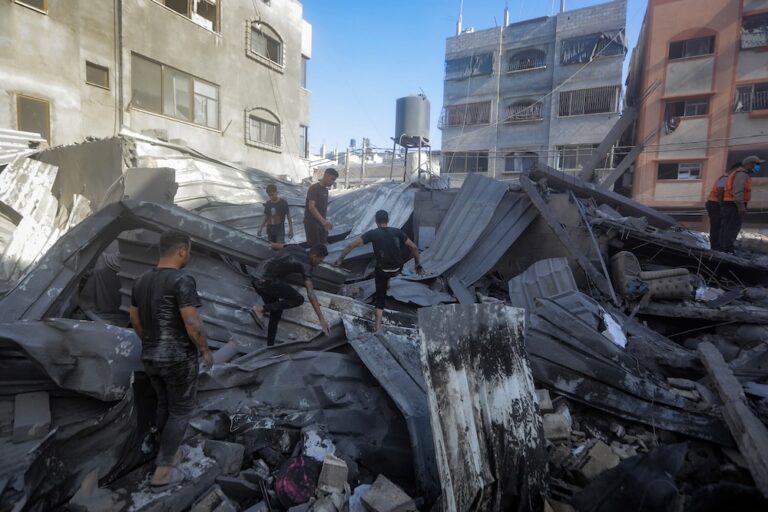(RSF/IFEX) – The following is an RSF open letter to Israeli Minister of Justice Meir Sheetrit: Paris, 14 September 2001 Dear Sir, We wish to express our outrage concerning the Israeli courts’ decision to close the inquiry into the shooting of TF1 journalist Bertrand Aguirre in May 2001. Eran Shangar, director of the Israeli police […]
(RSF/IFEX) – The following is an RSF open letter to Israeli Minister of Justice Meir Sheetrit:
Paris, 14 September 2001
Dear Sir,
We wish to express our outrage concerning the Israeli courts’ decision to close the inquiry into the shooting of TF1 journalist Bertrand Aguirre in May 2001.
Eran Shangar, director of the Israeli police bureau for internal affairs, justified this decision in the following terms in a letter addressed to the journalist: “After examining the case, I decided not to prosecute the policeman concerned, due to a lack of evidence.” Nothing could be further from the truth.
When Bertrand Aguirre was wounded by a real bullet in Ramallah (West Bank), three different television crews filmed the scene. Their films clearly show an Israeli border guard getting out of his vehicle, calmly taking aim and, with his cigarette between his lips, opening fire on the man, at a distance of 100 meters. The journalist, who had just finished an interview and still had his microphone in his hand, was hit in the chest. Fortunately the bullet-proof jacket he was wearing saved him. All necessary evidence is therefore available for the courts to establish responsibility for the shot.
This decision is particularly serious in so far as it shows the Israeli authorities’ obvious intention not to punish those responsible for such acts which could, in this case, have killed a journalist. In this respect the court’s decision can be considered as encouraging impunity.
It is, moreover, contradictory to all the promises made to us. Interviewed by Reporters Sans Frontières in July 2001, Israeli army spokesperson Olivier Rafowicz affirmed that: “We are going to group together these inquiries and publish them; I will personally see to that. We have to explain what has happened and reveal the mistakes. We really want to establish the truth.” When, on the same occasion, RSF asked for a commitment regarding sanctions against those responsible, the authorities replied: “It goes without saying that if it were established, after an investigation, that a member of the Israeli army had injured a journalist, the authority to which that soldier reports would apply sanctions as provided for by the law and relevant regulations.” It appears that these statements were nothing more than false promises.
The Israeli authorities’ double talk simply strengthens our impression that we have been deceived. Bertrand Aguirre shares this impression: “This decision clearly shows that the dice are loaded. I played the game. I gave them all the elements for the inquiry. We see here that the normal channels, that is, the courts, serve no purpose. I probably won’t appeal. This proves that they don’t want to see things for what they are.”
RSF has already expressed its concern as regards possible irregularities in the investigations into shots fired by the Tsahal at journalists, in a report entitled “Case Study of 45 Journalists Injured by Bullets in the Occupied Territories since 29 September 2000”. This report was presented to the Israeli authorities on 26 July 2001 at a press conference in Jerusalem, in the presence of Danny Seaman, director of the government press bureau.
On this international day of mourning, we hate to think that advantage may be taken of current events and the emotion related to the 11 September attacks in the United States to hush up this affair.
Yours faithfully,
Robert Ménard,
Secretary-General


